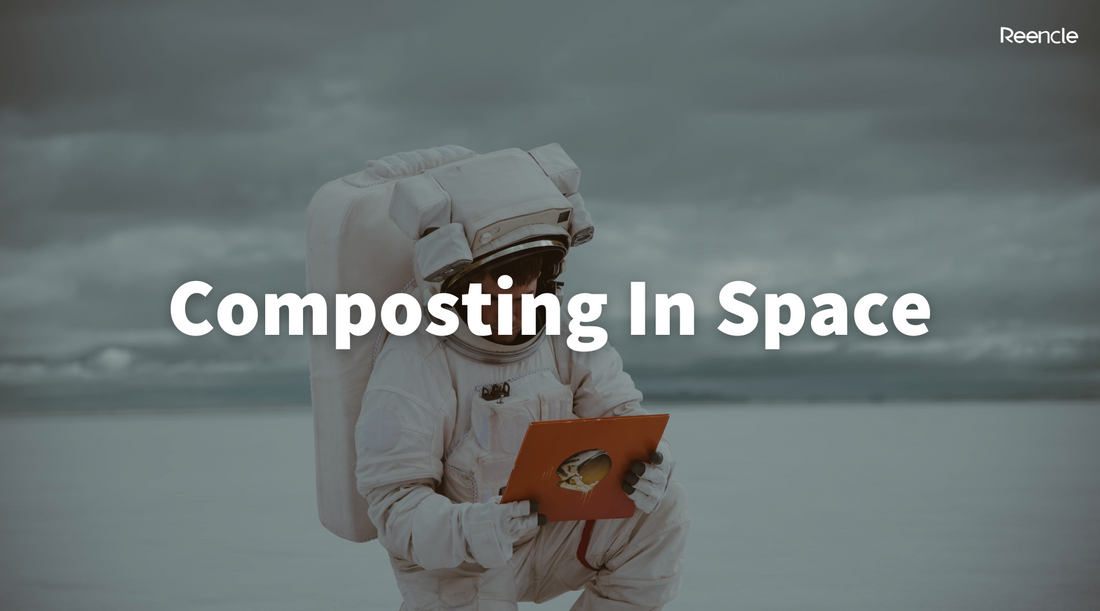Composting - the natural process of decomposition, has been a cornerstone of sustainable waste management practices on Earth for centuries. As we've expanded our reach beyond just our planet, the question of whether or not we can compost in space eventually arose.
The idea of composting in the extraterrestrial environment may seem far-fetched, but it holds significant potential for long-duration space missions, lunar bases, and future colonization efforts. In this blog post, we will explore the challenges and possibilities of composting in space, highlighting its importance for sustainable resource management and the well-being of astronauts.

The Challenge of Waste Management in Space
Space missions generate a substantial amount of waste, including food scraps, packaging materials, and even human waste. Historically, these wastes have been stored, compacted, and returned to Earth or incinerated, resulting in a significant loss of resources and a burden on spacecraft capacity. Composting offers an intriguing alternative, transforming organic waste into valuable soil-like material known as "compost," which can be used for growing plants, replenishing vital nutrients, and closing the resource loop in space.
The Benefits of Composting in Space
-
Resource Conservation:
Composting enables astronauts to harness the nutrients present in organic waste and recycle them back into the system. The resulting compost can be used as a nutrient-rich growing medium for cultivating fresh produce, reducing the reliance on resupply missions from Earth. - Psychological Well-being:
Long-duration space missions can be mentally and emotionally challenging for astronauts. Engaging in activities like composting and tending to plants can provide a sense of connection to nature, promote relaxation, and contribute to their overall well-being. - Waste Volume Reduction:
Composting allows for the efficient breakdown of organic waste, significantly reducing its volume. This is particularly important in the confined space of spacecraft and space habitats, where storage capacity is limited.

Overcoming Challenges
- Microgravity Environment:
Composting in microgravity poses unique challenges, as the absence of gravity affects the process of waste decomposition. However, scientists and engineers are exploring innovative technologies, such as centrifugal composting systems, which mimic Earth's gravitational force to aid the composting process. - Odor and Contamination Control:
Proper waste management is crucial to maintain a healthy and odor-free environment in space. Advanced filtration and containment systems can help capture odors and prevent the release of harmful gases, ensuring the safety and comfort of astronauts. - Composting Systems Design:
Designing composting systems suitable for space requires considerations such as compactness, energy efficiency, and ease of operation. Low-power composting methods, such as aerobic composting or vermicomposting using specially adapted worms, may prove to be effective solutions.

The Future of Composting in Space
Composting in space is still in its early stages, but ongoing research and experiments are paving the way for its future implementation. NASA and other space agencies are actively exploring the potential of composting technologies and their integration into spacecraft and habitats. Furthermore, private space companies are also investing in sustainable waste management systems as part of their long-term space exploration strategies.
The development of closed-loop life support systems, where waste is recycled and reused, will be critical for sustainable human presence beyond Earth. Composting, alongside other waste management strategies, offers an essential piece of the puzzle by providing a means to convert waste into valuable resources, fostering self-sufficiency and reducing the ecological footprint of space missions.

Composting in space may sound like a science fiction concept, but it holds immense potential for sustainable waste management, resource conservation, and the well-being of astronauts on long-duration missions. By harnessing the power of composting, we can transform waste into valuable resources, promote closed-loop systems, and take significant steps towards achieving sustainability beyond Earth.
As we venture further into the cosmos, composting in space could become an integral part of our efforts to explore and colonize other celestial bodies while preserving our environment and ensuring the resilience of future space missions.
Thankfully, you don't have to go to space to begin your composting journey. Start today - pre-order Reencle for an easy and automated way to turn food waste into nutrient-rich compost. Get RM600 OFF your pre-order with the promo code "VIP600" when you order here.

